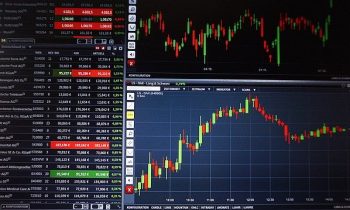USD/CAD remains nearly unchanged on Tuesday, hovering near a three-week high. Investors have kept the pairing relatively flat on the day as investors await Federal Reserve Chair Janet Yellen’s speech later in the day. Oil prices are also weighing on the Canadian dollar, keeping USD/CAD at a 0.12% gain in early-afternoon trading.
Yellen’s comments continue to draw interest from investors that monitor her comments for insight into potential U.S. policy changes. Yellen stated that the central bank will cut down on its $4.5 trillion assets and hinted at an interest rate hike later in the year.
William Dudley, New York Federal Reserve Bank President, further sparked speculation of an interest rate hike on Monday, stating that the Fed is on track to raise interest rates gradually. He states that the fundamentals in the U.S. are sound and eased worries on inflation.
“With a firmer import price trend and the fading of effects from a number of temporary, idiosyncratic factors, I expect inflation will rise and stabilize around the [Fed’s] 2 percent objective over the medium term,” said Dudley.
Remarks from Charles Evans, Chicago Federal Reserve Bank President, led to speculation that the Fed may hold off on interest rates. Evans said that the U.S. central bank should wait to raise interest rates again. He suggests that the bank should wait until prices are rising and there are clear signs of rising income before raising rates again this year.
Oil prices dipped 0.46% on Tuesday, adding pressure to the Canadian dollar, a commodity-based currency. Oil has rallied in recent months, hitting a multi-month high before today’s slump.
European Markets
The euro continues to extend losses on Tuesday, falling to a one-month low following German election results. EUR/USD fell 0.66% to $1.1770 on Tuesday after hitting lows of $1.1718. Germany’s Angela Merkel won the election over the weekend. However, concerns continue to mount as a lot of her supporters moved to the far right.
Investors fear that Germany’s economy may suffer from political uncertainty in the coming months, making increased integration into the euro zone more difficult.
Spain’s government added further pressure to the euro. The country plans to hold a referendum on Sunday to decide whether or not Catalan will break away from the government.
Mario Draghi, European Central Bank President, fueled further concern amongst investors, as he stated there still needs to be significant European Central Bank accommodation due to currency volatility.
EUR/GBP fell 0.33% to $0.8769 to hit a 10-week low.
USD/JPY rose 0.42%, up to $112.19, USD/CHF gained 0.44% to rise to $0.9708. AUD/USD fell 0.77% to $0.7876. NZD/USD also suffered significant losses, falling 1.22% to $0.7185. The kiwi remains under pressure following this weekend’s elections.
Bill English’s, New Zealand’s Prime Minister, won the weekend election, but failed to win van outright majority. The failure is putting pressure on investors that are remaining cautions as the government is formed.
New Zealand’s ANZ business confidence index also fell this month to zero. The decline comes after an 18.3 rating in August. Confidence is down since no single party won the majority of votes over the weekend. A round of coalition talks are expected to last up to weeks following the election.
Ben Myers
Latest posts by Ben Myers (see all)
- 3 Reasons Bitcoin is Still a Safe Haven Asset - June 12, 2020
- GCF Corporation and Genesis Green Initiatives Leading the Way - May 20, 2020
- Why Bitcoin Still Rules the Roost - May 13, 2020






